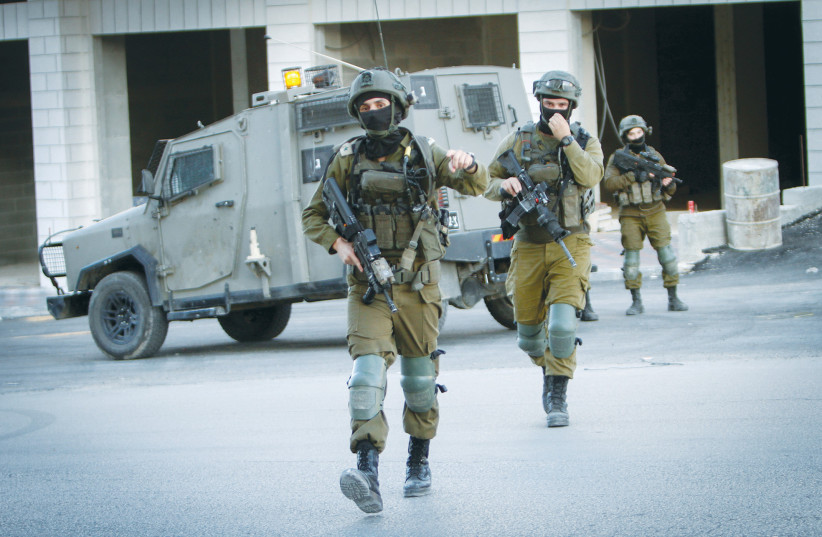In protest against the government’s judicial overhaul policy, only around 57% of IDF paratrooper reservists are showing up for duty this week, Haaretz reported on Wednesday.
Numbers dropped significantly in a variety of other units, such as certain commando units, as well, according to the report.
Generally, the report said that IDF paratrooper reservists show up in numbers around 90%.
Initially, on Wednesday, the IDF did not unequivocally deny the statistics but only responded that the Haaretz report was not entirely accurate, while failing to provide alternate data at press time despite promises to do so and repeated requests for a response throughout the day.
By Thursday, the Jerusalem Post had received alternate IDF data.

According to the alternate IDF data, the key unit being referenced in the Haaretz report had only dropped 8%, from a 67% rate of showing up to 59%, with the higher number being from August 2022 training and the lower number from March 2023 training.
Sources acknowledged that this data did not count soldiers who were injured, traveling overseas or brand new reservists who sometimes take some time to get their new lives set up, but said that there had not been significant change based on the reservist protest movement.
Related units in the alternate data had slightly increased attendance from August 2022 to March 2023, jumping from 59% to 69% in one case and from 57% to 72% in another case.
Overall the alternate IDF data showed a rise of 6% from 61% to 67%.
It was unclear what accounted for the discrepancy between the disparate statistics.
Why are IDF reservists not showing up?
Earlier in the week, as many as 750 IDF reservists had stopped answering their call-ups for training to protest the government’s overhaul of the judiciary and attorney-general’s authorities with a deafening silence from the IDF spokesperson’s office.
It was known that the around 750 reservists are comprised of a mix of air force personnel, Unit 8200 intelligence personnel and special forces officers.
Around 400 of the reservists come from special forces and general intelligence positions, with another around 250 reservists from Unit 8200 and related cyber units.
An additional almost 100 are air force technical officers or are involved in piloting drones. Earlier this month, already 37 reservist combat pilots had said they would strike from showing up for their training.
But as large as the numbers sounded, Wednesday’s report was the first to give the relative context of what the numbers of those striking mean in percentages for a specific elite unit.
All 10 living former IDF air force chiefs previously announced their backing for reservists and all of Prime Minister Benjamin Netanyahu’s former national security council chiefs, as well as recent former Mossad chief Yossi Cohen and former Shin Bet chief Nadav Argaman, encouraged the government to agree to a compromise.
However, eventually IAF Commander Maj.-Gen. Tomer Bar announced he would punish IDF (res.) Col. Gilad Peled, suspending him from reserve duty, for allegedly being a leader among the reservist strike movement.
If that punishment was expected to deter future striking, then the impact of Bar reversing his own decision within days saying that there had been a miscommunication, does not appear to have had the deterrent effect.
Some of the striking reservists are focused on opposing the judicial overhaul and some the law removing the attorney-general’s power to declare the prime minister unfit to serve, with a mix of officers also worried about receiving illegal orders from the government due to the presence of National Security Minister Itamar Ben-Gvir and Finance Minister Bezalel Smotrich.
Technically, IDF officers above that rank are not supposed to join any protests, but it is unclear whether that rule has been enforced in the past.
